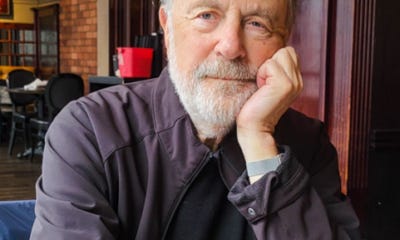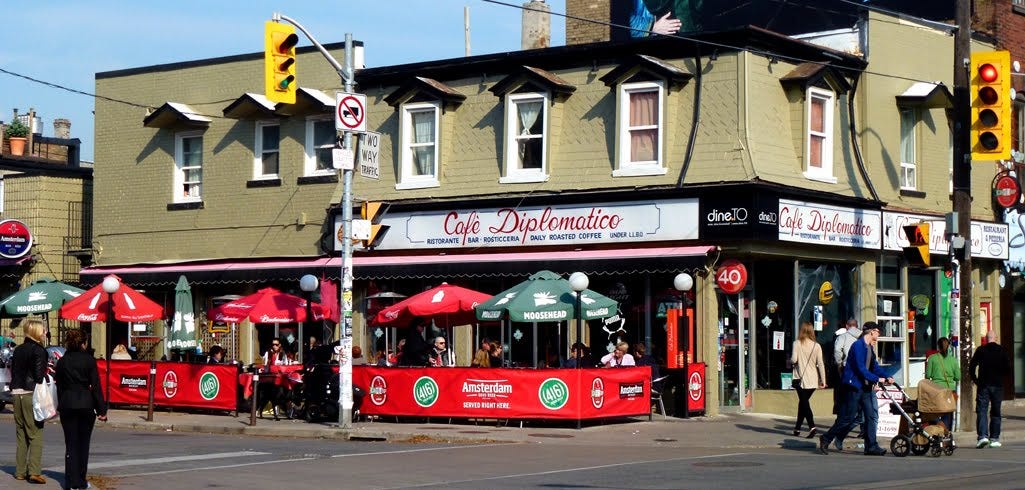Toronto, June 2, 2024
Death of a friend
My friend Murray Glow died on May 24, 2024, at the Princess Margaret Hospital in Toronto.
It is hard to sort out your emotions when someone you love dies. In the first days there is an animal-like grief. Even if you knew death was on its unstoppable way, you cannot believe it has now arrived. You are bereft. You weep. Elizabeth Barret Browning, Sonnets from the Portuguese 5: “Behold and see/ What a great heap of grief lay hid in me...”
But with the grief comes relief. The worst has now happened. The uncertainty is resolved. The suffering of the person who died is over. Now, we can look to the future. Now we can talk calmly of our friend and his life and the relationship we had with him. (Can we?)
You are sad for your friend who has died. You are sad for him, that his life has come to an end. There will be no more poker games with his pals (he would say, not very often, “I’m on a roll!”). He will not see Red Admiral butterflies filling a white-blossomed tree on a spring day on Ulster Street, or the brilliant peonies in his backyard. He will not know the grandchild who will be born in the autumn. He will never again, on an evening in Paris, saunter with his beloved wife through the Jardin du Palais Royale.
You are sad for the pain and suffering he endured in his illness, the anxiety he must have experienced in the last days of his life. Salman Rushdie in Knife: “When Death comes very close to you, the rest of the world goes far away and you can feel a great loneliness.”
But why feel such sadness for Murray? He had a good and full and long life. He was born and lived in Canada. He was eighty years old (“I made eighty!” he told me with satisfaction on the day). He had a close family that he loved and that loved him. He had an unusual gift of friendship: I’ve never known anyone so widely liked and admired. He’d enjoyed professional success and built a business from nothing. He had a splendid character and temperament: Someone who had worked for him said in an email he was “always cheerful, patient, forgiving, and constructive...” (True, he suffered from depression sometimes, but he was of Eastern European Jewish stock, and we’re entitled.) He was a lucky man, although, as we all do, he mostly made his own luck. We should not feel sadness for Murray. We should not weep for him.
We weep for ourselves, for without Murray our lives will be the poorer. Murray and I will never again, on a Wednesday morning, walk on College Street, chat with the crossing guard at the Clinton intersection, have lunch at Bar Dip (no potato puffs—must watch my weight, he said, a month before he died), joke with our favourite waitress, talk companionably about everything and anything—kids, trips we might take, trips we have taken, money management, to do lists, the magic of spread sheets, the importance of taking ten thousand steps a day, world affairs...
What are those who are left behind supposed to do, now that Murray is no longer here? And what about our own fate? His death foreshadows our own.
When an old friend dies, part of your history, the part you shared with him, fades and eventually dies as well. You knew so much about each other. You did so much together. You had a deep mutual understanding. You had few, if any, secrets. Murray sent me a text message from hospital a few days before he died: “Ours has been a great long friendship, central to my life. One of the few lives that stitches it all together.”
Amidst the sadness there is happiness. Henry Bolingbroke in Shakespeare’s Richard II: "I count myself in nothing else so happy/ As in a soul remembering my good friends."






I’ve always taken consolation from this thought, Philip: we don’t truly die until every last person who knew us and who remembers us with warmth has died. It’s only then that the candle finally goes out. The memory of Murray will last a very long time. Thank you for writing about him so movingly.
Philip. My sincerest condolences. Best regards.